Tim Atkinson's Blog, page 2
April 26, 2022
Gissa job!
My inbox contains all sorts of invitations, offers, information and presentations. But there aren't many like THIS:
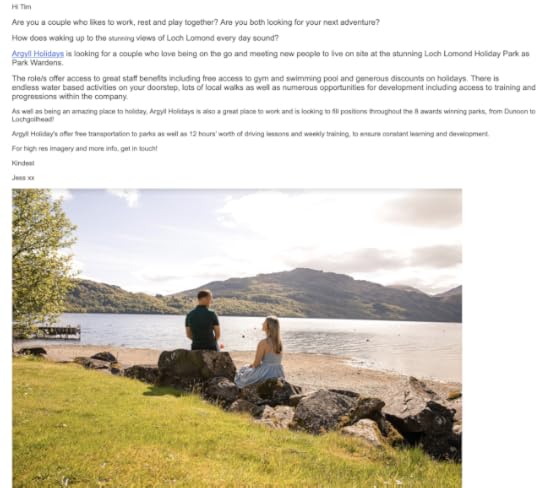
I mean, just look at it! Unfortunately, I'm not a 'couple' looking for our 'next adventure'. But if I was I'd not be telling you about this in case you applied for what at any other time would probably be my dream job.
I mean, just look at it. What's not to like?
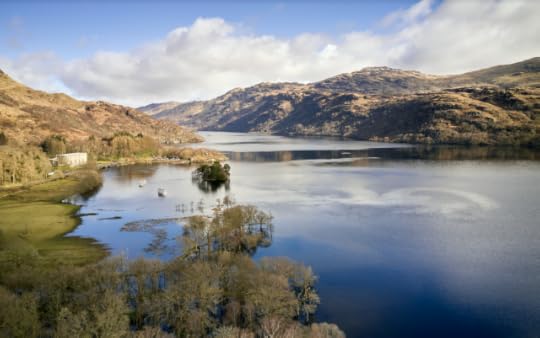

Anyway, if you fancy it, get in touch with them here: https://argyllholidays.com/recruitment
And if you get it... d'you fancy inviting me up to review the site for you?
Go on!
One good turn deserves another!
March 26, 2022
A Mediaeval Marvel
March 15, 2022
Great for both children and adults!
Operation Ouch! magazine is the official children’s magazine of the award-winning BBC TV show. Packed full of interactive puzzles, eye-opening experiments and awesome facts, it follows twin doctors Dr Chris and Dr Xand van Tulleken alongside Dr Ronx as they explore the fascinating worlds of medicine and human biology.
We were sent a copy for my daughter to review. Here's what she thought...
In "Ouch!" magazine you can read all about the body, how it works, and get tips on how to stay healthy. I enjoyed reading it and I think it is a good magazine.
I especially liked the section on pages 22-23: ‘Can you run barefoot?’ It taught me a lot about the soles of your feet and why it is very important to have sensible footwear on whilst running. I was extremely surprised when I found out that your feet have 200,000 nerve endings! No wonder stepping on a piece of Lego hurts so much! I also enjoyed reading about hiccups and what causes them. It helped me understand where they come from and what you can do to stop them (nothing). I also tried the balloon breaths on pp. 58-59 but that didn't go well as I couldn't stop laughing.
If there was one thing I think they could improve it would be the contents page. A few of the subjects covered in the magazine are listed on the back page but I wasn’t told where to go to if I wanted to read about eyes, for instance. I think that a more traditional contents page would have been better.
Overall, however, I think that this magazine is great both for children and adults. You can learn lots from it and has bits in that will make you laugh. I would recommend it if you are into the body and how it works, and if you need to do some research for a project.
Out of the mouths of babes, eh?

February 25, 2022
Ukraine explained...
In case you, or your kids (your own or those you teach) are wondering what the hell is going on, the following brief explainer might be helpful. After all, the finer points of Ukrainian history and politics aren't something we're all automatically familiar with, and even if we were, there's still a lot that's unclear if not downright confusing.
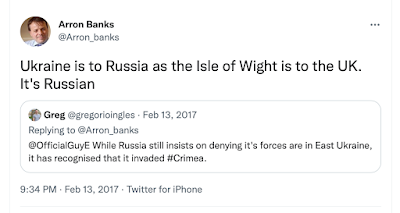
I mean, what is Putin doing? Contrary to what people like Arron Bank's are saying (and, let's just say he may have his own, personal reasons for doing so) Ukraine is not Russian in the same way as the Isle of Wight is British.
Far from it. Ukraine became a member or the USSR exactly a century ago in 1922. But with the collapse of the Soviet Union it became an independent nation state in 1991. So far, so good.
The problem, as far as there is one, is the Russina-speaking oblasts (regions) of Donetsk and Luhansk. There's been a conflict there for some time, between Russian-backed separatists and Ukrainian forces. On the face of it, that might seem analogous to, say, Basque or Catalan separatist movements in Spain, or republican struggles in Ireland.
But... those two Eastern oblasts make up the huge Donats coalfield. Yes, coal. Lots and lots of it. Coincidence? Maybe. But the "mere" fact of a region being populated by people speaking a language hasn't generally been considered grounds for an invasion. The German military occupation of Czechoslovakia, that began with the annexation of the German-speaking Sudetenland in 1938, anyone?
What underlies the whole thing is the fact that since 2014, when the pro-Russian president Viktor Yanukovych was removed from office after widespread protests. Russia regarded his overthrow as an illegal coup and refused to recognize the new government. Shortly afterwards they (Russia) annexed the Crimean peninsula, which is still regarded internationally as part of Ukraine.
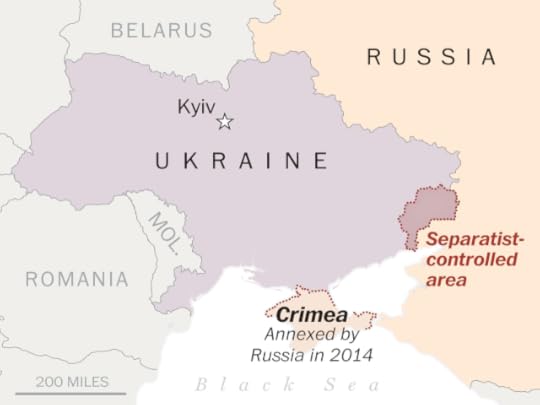
Having effectively got away with that, it was, perhaps, inevitable that Putin would eventually go further. A large, pro-Western country talking about joining NATO (the North Atlantic Treaty Organisation, effectively a military mutual-aid agreement between 30 Western nations) on its border might be regarded as a threat, but... well, that's what the Ukranian's wanted. The 2014 Revolution of Dignity (also known as the Maidan revolution) came about because pro-Russian president Viktor Yanukovych had refused to sign a free-trade EU association agreement. As soon as he fled the country, that contract was signed and shortly afterwards Petro Poroshenko became President of Ukraine following a landslide victory. That seems a pretty clear indication of the "will of the people." Certainly far stronger than the so-called "will of the people" that resulted in us, here in the UK, leaving the EU last year.
So, so... I hope that helps. I realise it might actually make things worse. But it's important to understand, and to get your information from a reliable, non-partisan source. (Ok, ok, I make no secret of being a dyed-in-the-wool remainer but apart from that...)
What's also important is to do whatever you can. There's a good list of organisation you can support who are striving to get help to those who need it most at this terrible time. And they, of course, are the innocent men, women and children of Ukraine.
Here's a link that explains how we can help them:
https://www.theguardian.com/uk-news/2022/feb/24/how-can-britons-help-the-people-of-ukraine
November 2, 2021
"A very powerful and much-needed addition to the library of pain-related literature"
I was delighted to meet Dr Deepak Ravindran last month as part of the Flippin' Pain community outreach
tour of Lincolnshire. I'd read his excellent book The Pain-Free Mindset: 7 Steps to Taking Control and Overcoming Chronic Pain this summer and thoroughly enjoyed its accessible and digestible mix of pain science and common-sense advice. Dr Ravindran is consultant pain specialist with Royal Berkshire NHS Foundation and has many years experience of helping patients (like me) to cope better with chronic pain.
So, as a patient, I thought I'd offer him the chance to read my patient's-eye book on the subject, Where Does It Hurt? This is what he had to say...
Reading the biography of someone with lived experience of pain is always a honour because it gives us the opportunity to look behind the curtain of someone who looks 'normal' to the rest of the world but is living with an invisible illness that can easily prevent them from living their lives to the full.
Tim Atkinson shows the unique issues of a lived expert in pain management in this book. An accomplished writer, he uses his diagnoses and management of his psoriatic arthritis to chart the difficult and time-consuming journey while observing the unique eccentricities and foibles of primary and secondary medical care with a great sense of humour and liberal references to other major writings.
Tim takes us on a journey through the most common treatments offered for pain management in the UK with a scenic detour through their history and an explanation of how they came to be. I found the chapter on history of opioids, mindfulness and BDSM particularly fascinating. He has also been able to present the newer understanding in a simplified and easy-to-grasp manner and as a clinician, I found seeing how a patient is able to distil and present the new complex science of pain processing very useful.
Ultimately, Tim talks about expectations and understanding the power of taking back control and agency as being key to manage and overcome pain. He has tried a variety of therapies and comes away with that powerful message that the language of pain needs changing. Even more important is the belief and ability to take control and do something about pain rather than being a passive recipient of healthcare. Coming from a patient advocate who lives with pain, that is a very powerful and much needed message to everyone who suffers from chronic pain.
Thank you, Tim, for writing this book. It is a much needed addition to the growing library of pain related literature for patients and healthcare professionals.
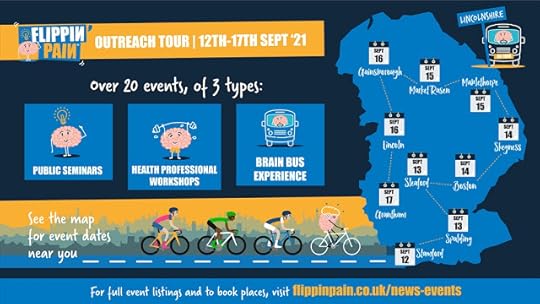
Lest we Forget...
It's the centenary of the Poppy Appeal and if you'd like to know more about the history of this fundraising initiative, look no further than this month's Reader's Digest magazine, where my article entitled "Lest We Forget" explains its humble origins with handmade flowers through to the multi-million pound fund-raising appeal of today.
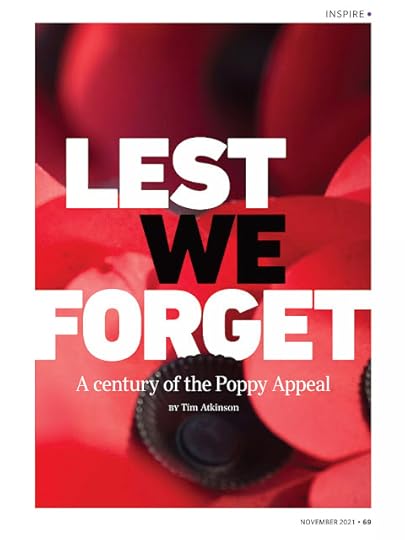
October 4, 2021
Entasis
I don't often post about the Great War anymore. But it has not lost its fascination!
Today is World Architecture Day and it's an appropriate time to consider the enormous achievement of the Great War's chief architect, Edwin Lutyens. Famous, of course, for designing the Cenotaph in Whitehall, Lutyens had been involved since before the war's end with plans for its commemoration, and plans to the remembrance of the war dead.
On a trip to France and Flanders in 1917 Lutyens spoke about the "the ribbon of isolated graves like a milky way across miles of country where men were tucked in where they fell." Those haphazard battlefield burials would be tidied into the great military cemeteries we know today and in many, there be be a white stone altar (known, non-liturgically as the Stone of Remembrance) inscribed with the words (chosen by Kipling) "Their Name Liveth For Everymore".
Both the Stone (relatively small, at 12ft long and 4ft high) and the Cenotaph (over 30ft high) are built using the ancient architectural principle of entasis, used in the building of monument like the Parthenon. What this means is that neither the horizontal nor the vertical surfaces are truly straight: they taper, imperceptibly, according to mathematical calculations that were apparently so complicated they covered 30 pages of Lutyens notebooks!
To the naked eye, the lines look straight. But they curve, very slightly and if you were to continue the vertical lines of either the Stone or the Cenotaph they would form a great arc meeting 1000ft above the ground. The horizontal lines, meanwhile, would extend to form a circle whose centre would be 900ft below ground.
It's a subtle effect that gives both monuments a sense of hidden grandeur and a connection with the eternal. If you've ever stood and wondered just what it is about such otherwise plain, straightforward monuments that makes them so impressive, entasis could be the answer.



August 9, 2021
Philip Larkin reads Aubade
Philip Arthur Larkin, Hull University's librarian and one of the finest poets in the English language, was born on this day in 1922. To mark the occasion here's the man himself reading what is probably his greatest poem, a meditation on the "unresting", unrelenting approach each day of death.
Yes, cheery stuff. But that was what he was like. And it takes a special sort of courage, I think, to stare down death like this, not to hide or dissemble or mythologise... just stare, stare at the "awful emptiness for ever" without flinching. It's a beautiful poem and that's another of Larkin's great strengths: making something memorable, and beautiful, out of something otherwise unutterably awful.
July 24, 2021
A Northern Light
The chances of finding an article you've written published on the very day you're visiting the town in question must be pretty remote, I'd have thought. The chances of then seeing it while casually browsing in a newsagents are pretty low too, especially when it's tucked away on page 58!
We visit Ripon regularly and I'd often thought I ought to write about this small, overlooked part of Yorkshire. The cathedral hasn't got the scale and grandeur of nearby York Minster; Nidderdale is hardly known compared to neighbouring Wensleydale and Swaledale.
But Ripon is a forgotten gem among English towns (a city, really, having a Royal Charter dating from the ninth century) and it deserves to be better known. Just not too much better known... after all, one its many charms is its tranquility.
Anyway, if you fancy a read, here's the link: https://www.dailymail.co.uk/travel/escape/article-9820837/UK-staycation-joys-Ripon-one-Englands-oldest-smallest-tranquil-cities.html

June 15, 2021
It's Time...
What good does hate do? What good is punishment?
If you haven't already watched Time by Jimmy McGovern and if you have ever wondered about such questions, if you've ever watched Porridge with Ronnie Barker and thought that prison is just a cosy comedy or that prisoners have it too good, thought hanging's too good for 'em, said they should be locked up and the key thrown away, wondered how drugs and knives get into high security prisons, wondered why knives and drugs get into high security prisons, if you're the Home Secretary or want to be or have been, or if you're a politician of any persuasion, if you're concerned about crime and genuinely interested in how it can be reduced, in how criminals should be dealt with, in how society ought to right the wrongs done to people, in short, if you're a thinking, feeling, human being, then watch this.
It won't be easy. And there won't be any easy answers to any of the questions it raises. There can't be. Don't believe anyone, whoever they are, who says they know the answer and that the answer's easy. It isn't.
But we sure as hell need to try and find it.



